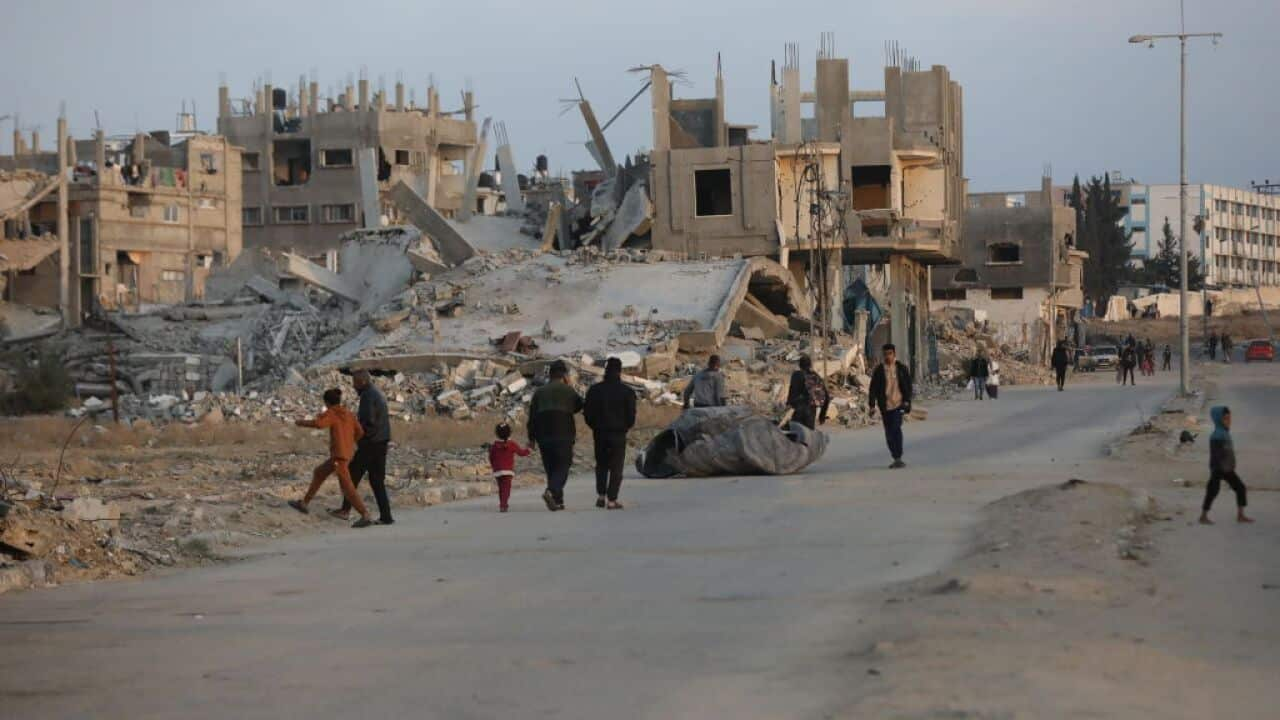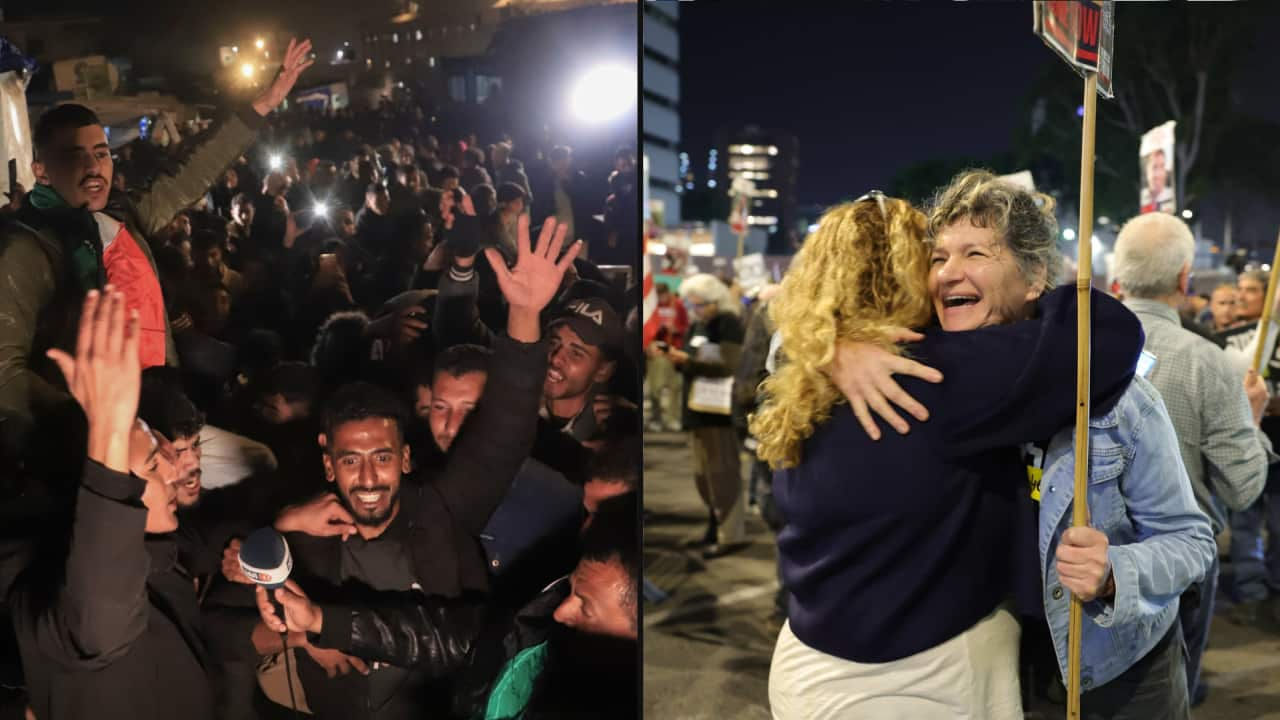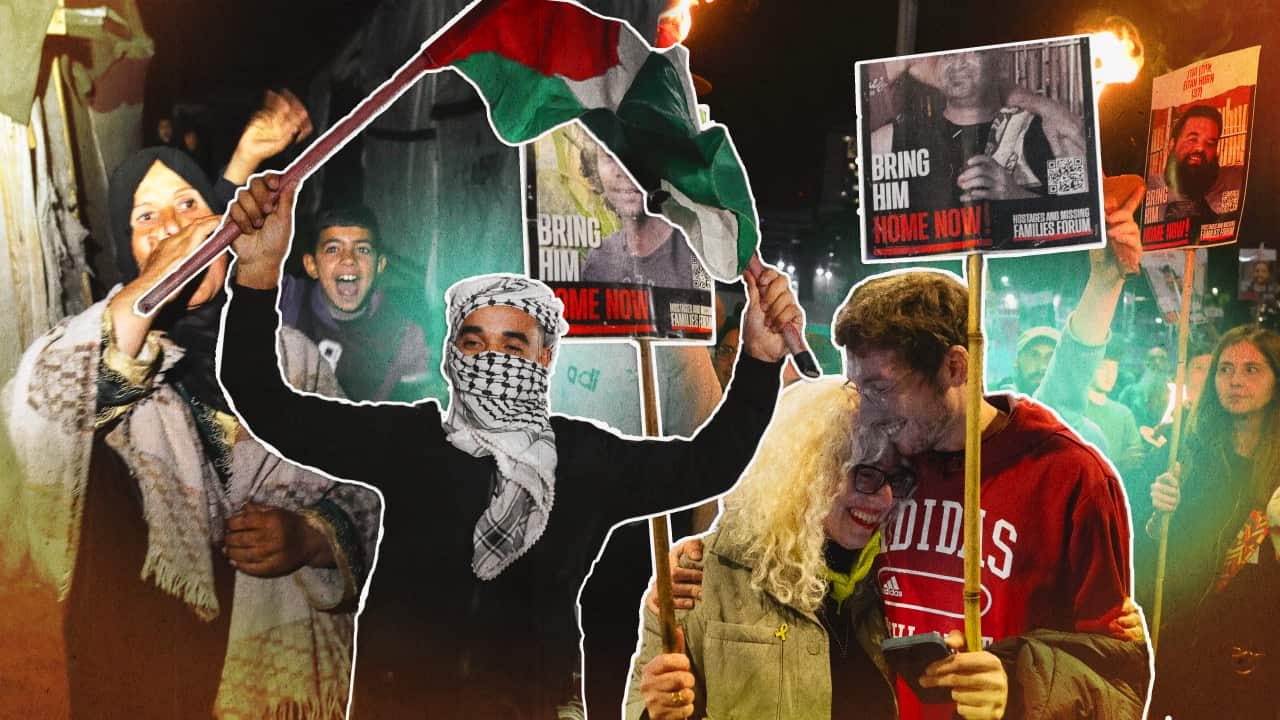Israel's cabinet has approved a deal with Hamas for a ceasefire and release of hostages in the Gaza Strip, Prime Minister Benjamin Netanyahu's office said, a day ahead of the agreement's scheduled start.
In the early hours of Saturday (local time), after meeting for more than six hours, the government ratified the agreement that could pave the way for an end to the 15-month-old war in the Palestinian enclave.
"The government has approved the framework for the return of the hostages. The framework for the hostages' release will come into effect on Sunday," Netanyahu's office said in a brief statement.
In Gaza itself, Israeli warplanes have kept up heavy attacks since the ceasefire deal was agreed.
Medics in Gaza said an Israeli airstrike early on Saturday killed five people in a tent in the Mawasi area west of Khan Younis in the enclave's south.

Benjamin Netanyahu's office said in a brief statement that Israel's government had approved a deal with Hamas for a ceasefire and release of hostages in Gaza. Source: AAP / Menahem Kahana/AP
"We have locked down every single detail in this agreement. We are quite confident... it is ready to be implemented on Sunday," McGurk said on CNN from the White House.
Under the deal, the three-stage ceasefire starts with an initial six-week phase when hostages held by Hamas will be exchanged for prisoners detained by Israel.
Thirty-three of the 98 remaining Israeli hostages, including women, children, and men over 50, were due to be freed in this phase.
Israel will release all Palestinian women and children under 19 in Israeli jails by the end of the first phase.
The names of 95 Palestinian prisoners to be turned over on Sunday were announced by the Israeli Justice Ministry on Friday.
The accord had been bitterly opposed by some Israeli cabinet hardliners.
The opponents said the ceasefire agreement represented a capitulation to Hamas. National Security Minister Itamar Ben-Gvir threatened to resign if it was approved and urged other ministers to vote against it. However, he said he would not bring down the government.
His fellow hardliner, Finance Minister Bezalel Smotrich, also threatened to quit the government if it does not go back to war to defeat Hamas after the first six-week phase of the ceasefire.
After a last-minute delay on Thursday that Israel blamed on Hamas, the Israeli security cabinet voted on Friday in favour of the ceasefire accord, the first of two approvals required.
Hamas had said on Friday that obstacles which arose in relation to the terms of the ceasefire agreement had been resolved, according to a statement issued by the group.
'I hope it will happen'
Israel has bombarded Gaza since Hamas' October 7 attack in which more than 1,200 people, including an estimated 30 children, were killed and over 200 hostages taken, according to the Israeli government.
More than 46,000 people have been killed in Gaza since October 7, according to the health ministry in Gaza.
The October 7 attack was a significant escalation in the long-standing conflict between Israel and Hamas.
If successful, the ceasefire could also ease hostilities in the Middle East, where the Gaza war spread to include Iran and its proxies — Lebanon's Hezbollah, Yemen's Houthis and armed groups in Iraq as well as the occupied West Bank.
Gaza civilians have faced a humanitarian crisis due to hunger, cold and sickness. The ceasefire agreement calls for a surge in assistance, and international organisations have aid trucks lined up on Gaza's borders to bring in food, fuel, medicine and other vital supplies.
Palestinians waiting for food in the southern Gaza Strip on Friday said they hoped a truce will mean an end to hours of queuing to fill one plate.
"I hope it will happen so we'll be able to cook in our homes and make whatever food we want, without having to go to soup kitchens and exhaust ourselves for three or four hours trying to get (food) — sometimes not even making it home," displaced Palestinian Reeham Sheikh al-Eid said.











